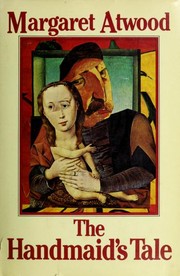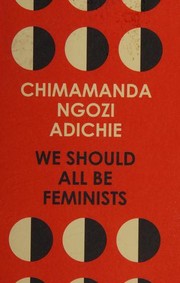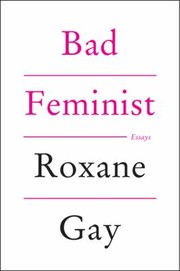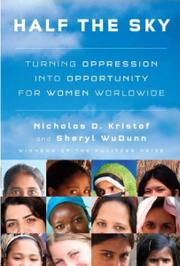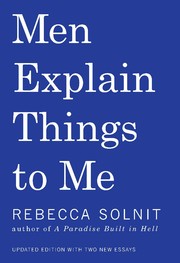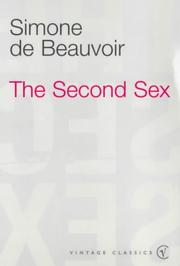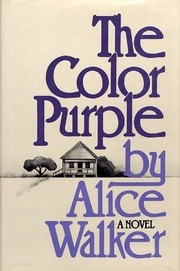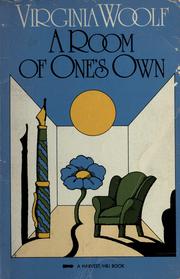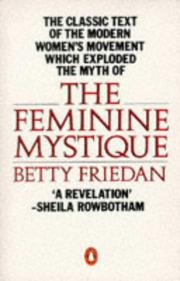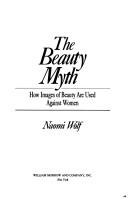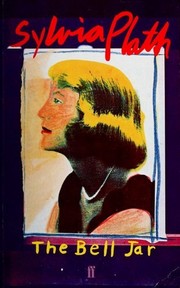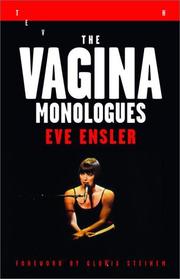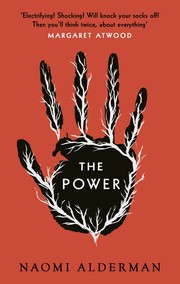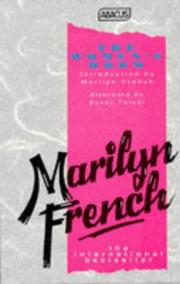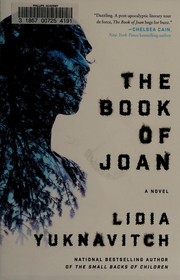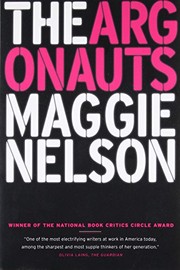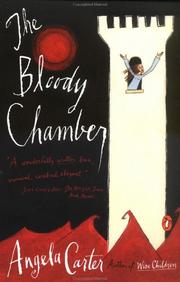Are you looking for powerful and thought-provoking reads on the subject of female oppression? Look no further! We have compiled a list of the 20 best books on female oppression that will open your eyes to the struggles and triumphs of women throughout history. From classic literature to modern memoirs, these books offer diverse perspectives and compelling narratives that shed light on the pervasive issue of female oppression. Get ready to be inspired and enlightened by these essential reads.
Contents
- 1 20 Best Books About Female Oppression
- 2 The Handmaid’s Tale
- 3 We Should All Be Feminists
- 4 Bad Feminist
- 5 Half the Sky: Turning Oppression into Opportunity for Women Worldwide
- 6 Men Explain Things to Me
- 7 The Second Sex
- 8 The Color Purple
- 9 A Room of One’s Own
- 10 The Feminine Mystique
- 11 The Beauty Myth
- 12 The Yellow Wallpaper
- 13 The Bell Jar
- 14 The Vagina Monologues
- 15 The Power
- 16 The Female Persuasion
- 17 The Awakening
- 18 The Women’s Room
- 19 The Book of Joan
- 20 The Argonauts
- 21 The Bloody Chamber
- 22 Conclusion
- 23
- 24 Women'S Issues Books: A Curated 2024 Updated List
- 25 Best Books About Trans Guys. 2024 Edition
- 26 Reading List of Kennedy Assassination Conspiracy Books – 2024 Update
20 Best Books About Female Oppression
The Handmaid’s Tale
by Margaret Atwood
The Handmaid’s Tale by Margaret Atwood is a chilling dystopian novel set in a society where women have been stripped of their rights and are subjected to extreme oppression. The story follows Offred, a handmaid who is forced to bear children for the ruling class. Atwood’s powerful narrative explores themes of control, power, and the resilience of the human spirit in the face of adversity. The book delves into the complexities of gender relations and the consequences of a society built on the subjugation of women. With its thought-provoking exploration of female oppression, The Handmaid’s Tale has become a seminal work in feminist literature and a stark warning about the dangers of extremism and totalitarianism.
We Should All Be Feminists
by Chimamanda Ngozi Adichie
Chimamanda Ngozi Adichie‘s “We Should All Be Feminists” is a powerful book on female oppression that challenges readers to reconsider the societal norms and expectations that limit women’s opportunities and freedoms. Drawing from her own experiences as a woman and her observations of gender dynamics in Nigeria, Adichie offers a compelling argument for the importance of feminism in today’s world. Through poignant anecdotes and insightful analysis, she highlights the ways in which women are marginalized and discriminated against, and calls for a collective effort to dismantle the patriarchal structures that perpetuate inequality. This book about female oppression is a thought-provoking and empowering read that inspires readers to advocate for gender equality and recognize the inherent value of feminism in creating a fairer and more just society.
Bad Feminist
by Roxane Gay
Bad Feminist by Roxane Gay is a thought-provoking exploration of contemporary feminism and the complexities of being a woman in today’s society. In this candid collection of essays, Gay reflects on her own experiences and challenges the traditional expectations placed on women. She delves into topics such as gender, race, pop culture, and politics, offering a refreshing and honest perspective on the nuances of modern feminism. Through her witty and insightful writing, she challenges the notion of what it means to be a “good” feminist and encourages readers to embrace their imperfections. With a sharp eye and a compassionate heart, Gay delves into the female oppression book in a way that is both relatable and empowering. Bad Feminist is a must-read for anyone interested in a nuanced and inclusive discussion of female oppression.
Half the Sky: Turning Oppression into Opportunity for Women Worldwide
by Nicholas D. Kristof and Sheryl WuDunn
Half the Sky: Turning Oppression into Opportunity for Women Worldwide is a powerful book on female oppression that sheds light on the struggles women face around the world. Written by Nicholas D. Kristof and Sheryl WuDunn, this eye-opening book about female oppression explores the ways in which women are marginalized, abused, and denied opportunities in various societies. The authors share stories of resilience and hope, highlighting the incredible strength and potential of women in the face of adversity. Through their compelling narrative, Kristof and WuDunn inspire readers to take action and work towards creating a more equitable world for women. This female oppression book is a call to action, urging readers to join the fight for gender equality and empower women to reach their full potential. Half the Sky is a must-read for anyone passionate about social justice and women’s rights.
Men Explain Things to Me
by Rebecca Solnit
Men Explain Things to Me, written by Rebecca Solnit, is a thought-provoking book on female oppression. Solnit delves into the issue of gender inequality, discussing the pervasive phenomenon of men dismissing women’s knowledge and expertise. The title essay, “Men Explain Things to Me,” has become a touchstone for feminists around the world, highlighting the frustration and indignation women often experience when their voices are silenced or overlooked. Solnit also explores the broader implications of this behavior, shining a light on the systemic nature of female oppression. Through her insightful and eloquent writing, she urges readers to confront the deep-rooted power imbalances that perpetuate gender discrimination. Men Explain Things to Me is a powerful and essential read for anyone seeking to understand and challenge the dynamics of female oppression.
The Second Sex
by Simone de Beauvoir
The Second Sex, written by Simone de Beauvoir, is a groundbreaking book about the subjugation and marginalization of women in society. This influential feminist text delves into the complexities of womanhood, examining the ways in which women have been historically oppressed, objectified, and denied their autonomy. De Beauvoir’s work challenges traditional gender roles and societal expectations, shedding light on the pervasive inequalities that have long plagued women. Through incisive analysis and compelling arguments, The Second Sex confronts the systemic issues of patriarchy and gender discrimination, offering an insightful and thought-provoking exploration of female oppression. This seminal book remains a powerful and essential resource for anyone seeking to understand and dismantle the structures of inequality that continue to impact women’s lives.
The Color Purple
by Alice Walker
The Color Purple by Alice Walker is a powerful, poignant novel that delves into the lives of African American women in the early 20th century. Set in the deep American South, the story follows the life of Celie, a young girl who faces unimaginable hardships and abuse. Through a series of letters, Celie shares her innermost thoughts and experiences with God, creating a raw and intimate narrative of her struggles and triumphs. The novel explores themes of female oppression, resilience, and the strength of sisterhood in the face of adversity. Walker’s evocative prose and unflinching portrayal of the harsh realities of life for African American women make The Color Purple a captivating and important read for anyone seeking to understand the complexities of female oppression.
A Room of One’s Own
by Virginia Woolf
A Room of One’s Own by Virginia Woolf is a powerful exploration of women’s experiences and creativity in a male-dominated society. In this thought-provoking essay, Woolf argues that women have been historically oppressed and denied the same opportunities as men, particularly in the literary world. She emphasizes the importance of financial independence and personal space for women to pursue their creative endeavors, using the metaphor of “a room of one’s own” to symbolize the freedom and autonomy necessary for female artists to thrive. Through poignant observations and compelling arguments, Woolf delves into the complexities of gender inequality and the impact it has on women’s lives and artistic expression. A Room of One’s Own is a timeless and essential read for anyone interested in understanding the nuances of female oppression and the pursuit of gender equality.
The Feminine Mystique
by Betty Friedan
The Feminine Mystique is a groundbreaking book on female oppression written by Betty Friedan. Published in 1963, it ignited the second-wave feminism movement by shedding light on the discontent and disillusionment experienced by American housewives in the 1950s and 1960s. Friedan’s exploration of the ‘problem that has no name’ resonated with countless women who felt trapped in the domestic sphere and unfulfilled by traditional gender roles. She delved into the societal pressures and expectations that constrained women, sparking a national conversation about gender inequality and the limitations placed on women’s potential. The book ignited a revolution, inspiring women to challenge the status quo and demand equality and opportunity. The Feminine Mystique is a powerful and influential book about female oppression that continues to be relevant today.
The Beauty Myth
by Naomi Wolf
The Beauty Myth by Naomi Wolf is a groundbreaking book on female oppression that explores the societal pressures and expectations placed on women to adhere to unrealistic beauty standards. Wolf delves into the ways in which the beauty industry, fashion, and media perpetuate these standards, leading to feelings of inadequacy, self-doubt, and anxiety among women. She argues that these unattainable ideals not only harm women’s self-esteem, but also serve as a tool for controlling and limiting their power and autonomy. Through thorough research and analysis, Wolf challenges the notion that women’s worth is tied to their physical appearance, and calls for a reclamation of female agency and liberation from these oppressive standards. The Beauty Myth is a thought-provoking and empowering book about female oppression that continues to inspire and resonate with readers worldwide.
The Yellow Wallpaper
by Charlotte Perkins Gilman
The Yellow Wallpaper by Charlotte Perkins Gilman is a compelling book on female oppression. The story follows a woman who is confined to a room by her husband and forbidden from writing or doing anything meaningful. As she spends her days in isolation, she becomes fixated on the yellow wallpaper in the room, a symbol of her own confinement and oppression. The book offers a powerful exploration of the psychological effects of being controlled and silenced, as well as the larger societal impact of women’s oppression. Through the protagonist’s descent into madness, Gilman effectively portrays the damaging effects of the patriarchal system on women’s mental health. The Yellow Wallpaper remains a significant and thought-provoking book about female oppression, shedding light on the struggles and challenges faced by women in a male-dominated society.
The Bell Jar
by Sylvia Plath
The Bell Jar by Sylvia Plath is a poignant and raw portrayal of a young woman’s descent into mental illness in the 1950s. The novel provides a gripping insight into the protagonist’s struggles with identity, societal expectations, and the oppressive forces that threaten to stifle her spirit. Plath’s exquisite prose delves into the complexities of mental health and the stifling effects of gender roles, making it a powerful book on female oppression. The Bell Jar is a timeless classic that continues to resonate with readers, offering a compelling exploration of the constraints placed on women in a patriarchal society. This book about female oppression is a must-read for those seeking a thought-provoking and emotionally charged literary experience.
The Vagina Monologues
by Eve Ensler
The Vagina Monologues by Eve Ensler is a powerful and provocative book about female oppression. Through a series of monologues, Ensler explores various topics related to womanhood, sexuality, and the female experience. The book delves into the complexities of the female body, addressing issues such as sexual violence, reproductive rights, and societal expectations. Ensler’s writing is raw and unapologetic, shedding light on the struggles and triumphs of women around the world. The Vagina Monologues is a groundbreaking work that challenges the status quo and empowers women to embrace their bodies and their voices. It is a must-read for anyone interested in understanding the complexities of womanhood and the ongoing fight against oppression.
The Power
by Naomi Alderman
The Power by Naomi Alderman is a thought-provoking and gripping novel that explores the dynamics of power and gender. Set in a world where women develop the ability to generate electric shocks, the book delves into the impact of this newfound power on society. As women gain control and dominance, the traditional power structures shift, leading to a reversal of gender roles and a reexamination of the dynamics of power and control. The novel challenges the reader to question societal norms and the complexities of gender dynamics, making it a compelling and timely read. With its powerful narrative and thought-provoking themes, The Power is a must-read for anyone interested in a compelling book about female oppression and the complexities of power dynamics.
The Female Persuasion
by Meg Wolitzer
The Female Persuasion by Meg Wolitzer is a powerful exploration of the complexities of female oppression. The novel follows the story of Greer Kadetsky, a young woman who becomes involved with a prominent feminist and her influential organization. As Greer navigates the challenges of her personal and professional life, she grapples with the pervasive forces of gender inequality and societal expectations. Wolitzer skillfully weaves together themes of ambition, friendship, and the struggle for equality, creating a compelling and thought-provoking narrative. The novel offers a poignant and timely reflection on the female experience, making it a must-read for anyone interested in the ongoing conversation surrounding women’s rights and empowerment. With its rich character development and insightful exploration of female oppression, The Female Persuasion is a captivating and essential read for modern audiences.
The Awakening
by Kate Chopin
The Awakening by Kate Chopin is a thought-provoking novel that delves into the complex issues of female oppression and societal expectations. Set in the late 19th century, the story follows the journey of Edna Pontellier, a woman who struggles to break free from the constraints of her traditional role as a wife and mother. As she navigates her own desires and aspirations, Edna’s awakening to her own identity and independence is both empowering and tragic. Chopin’s exploration of female autonomy and the limitations placed on women in society makes The Awakening a compelling and timeless read. This book about female oppression challenges the conventional norms of its time and continues to resonate with readers today.
The Women’s Room
by Marilyn French
The Women’s Room by Marilyn French is a powerful and compelling novel that delves into the lives of women in the 1950s and 1960s, addressing issues of gender inequality, societal expectations, and the struggle for independence. This groundbreaking book on female oppression follows the protagonist, Mira, as she navigates through the confines of marriage, motherhood, and societal pressures. French’s poignant storytelling and unflinching exploration of the female experience make this a must-read for anyone interested in the complexities of womanhood. The Women’s Room is a thought-provoking and eye-opening book about female oppression that challenges the status quo and sheds light on the struggles faced by women in a patriarchal society.
The Book of Joan
by Lidia Yuknavitch
The Book of Joan by Lidia Yuknavitch is a dystopian novel that explores the themes of gender, power, and resistance. Set in a post-apocalyptic world, the story follows the protagonist, Joan, as she fights against a tyrannical ruler and the oppressive forces that seek to control and suppress women. Through vivid and poetic prose, Yuknavitch delves into the complexities of female oppression, offering a powerful critique of patriarchal systems and the resilience of the human spirit. The novel is a thought-provoking and haunting exploration of the female experience in a world dominated by violence and power struggles. Yuknavitch’s bold and unflinching storytelling makes The Book of Joan a must-read for anyone interested in a gripping and evocative narrative about the struggles of women in a hostile world.
The Argonauts
by Maggie Nelson
The Argonauts by Maggie Nelson is an intimate and thought-provoking exploration of love, gender, and family. In this genre-defying memoir, Nelson delves into her relationship with artist Harry Dodge, their experiences with pregnancy and motherhood, and the complexities of gender identity. Through a blend of personal anecdotes, critical theory, and poetic prose, Nelson challenges traditional notions of identity and family while also shedding light on the struggles and triumphs of individuals who exist outside of societal norms. The book offers a powerful meditation on the fluidity of gender and the limitations of language in expressing the complexities of human experience. With its fearless examination of love, desire, and the constraints of societal expectations, The Argonauts is a captivating and thought-provoking exploration of the human condition.
The Bloody Chamber
by Angela Carter
The Bloody Chamber by Angela Carter is a captivating collection of dark and sensual reimagined fairy tales. The stories are rich with themes of female oppression, exploring the complexities of power, desire, and identity. The book delves into the concept of patriarchy and the struggles faced by women in a male-dominated society. Through a series of haunting and thought-provoking narratives, Carter challenges traditional gender roles and examines the ways in which women navigate a world fraught with danger and subjugation. The stories are both enchanting and unsettling, offering a unique perspective on the female experience. The Bloody Chamber is a powerful and evocative exploration of the complexities of womanhood, making it a must-read for anyone interested in thought-provoking literature about the struggles of women in society.
Conclusion
In conclusion, these 20 best books about Female Oppression provide a powerful and insightful examination of the struggles and resilience of women throughout history. Through these thought-provoking narratives, readers are able to gain a deeper understanding of the various forms of oppression that women have faced, and continue to face, in society. These books serve as important tools for sparking conversations and driving change towards a more equitable world for all. Dive into these compelling stories and be inspired to join the fight for gender equality.
Which Female Oppression book is best?
The best book on Female Oppression can vary with personal preference, but three widely recommended titles are:
- The Handmaid’s Tale by Margaret Atwood,
- We Should All Be Feminists by Chimamanda Ngozi Adichie,
- Bad Feminist by Roxane Gay.
Each offers valuable insights and could be a great starting point.
What are the best books to learn about Female Oppression?
For those looking to learn about Female Oppression, there is a wealth of literature that can provide a comprehensive understanding of the subject. Some of the most highly recommended books include:
- The Handmaid’s Tale by Margaret Atwood,
- We Should All Be Feminists by Chimamanda Ngozi Adichie,
- Bad Feminist by Roxane Gay,
- Half the Sky: Turning Oppression into Opportunity for Women Worldwide by Nicholas D. Kristof and Sheryl WuDunn,
- Men Explain Things to Me by Rebecca Solnit,
- The Second Sex by Simone de Beauvoir,
- The Color Purple by Alice Walker,
- A Room of One’s Own by Virginia Woolf,
- The Feminine Mystique by Betty Friedan,
- The Beauty Myth by Naomi Wolf
These books offer a range of perspectives on Female Oppression, covering various aspects and approaches to the subject.
What are the best books on Female Oppression?
The best books on Female Oppression include:
- The Handmaid’s Tale by Margaret Atwood,
- We Should All Be Feminists by Chimamanda Ngozi Adichie,
- The Yellow Wallpaper by Charlotte Perkins Gilman,
- The Bell Jar by Sylvia Plath,
- A Room of One’s Own by Virginia Woolf,
- The Second Sex by Simone de Beauvoir.
Each offers unique insights into the subject. While these books on the topic of Female Oppression are highly regarded, it’s important to note that any list of ‘best’ books is subjective and reflects a range of opinions.
What are the best Female Oppression books of all time?
Choosing the best Female Oppression books of all time can vary depending on who you ask, but seven titles that are often celebrated include
- The Handmaid’s Tale by Margaret Atwood,
- We Should All Be Feminists by Chimamanda Ngozi Adichie,
- Men Explain Things to Me by Rebecca Solnit,
- A Room of One’s Own by Virginia Woolf,
- The Beauty Myth by Naomi Wolf,
- The Bell Jar by Sylvia Plath,
- and The Yellow Wallpaper by Charlotte Perkins Gilman.
Each of these books has made a significant impact in the field of Female Oppression and continues to be influential today.

